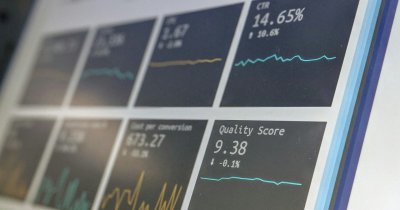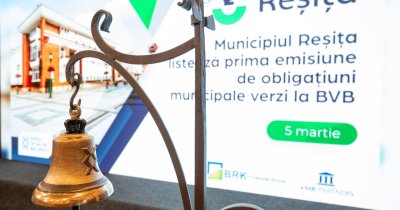“The developments in the energy market in recent months and the decision to phase out dependence on fossil fuels from Russia have given the European Commission an extra incentive to push ahead with the Green Deal targets, even if on the short term this will require diversification of supply sources - meaning higher imports of liquefied gas, pipeline imports from non-Russian suppliers and higher levels of biomethane and hydrogen, as well as higher use of coal in the short term. As announced the other day, EC is ready to draw up a plan to support diversification of energy supply, but the aim will still be to accelerate the transition to renewable energy and improve energy efficiency”, said Dinu Bumbăcea, Country Managing Partner, PwC Romania.
Challenges for companies when dealing with the Green Deal
The largest perceived challenges to companies are a lack of organisational skills and processes to understand all the implications of the Green Deal, quantify the costs of the related levies, benefit from available incentives and maximise the opportunities arising from the transition to more sustainable economies.
The EU is expected to introduce more than 1,000 different levies to partially fund the EUR 260 billion-a-year cost of the Green Deal. These taxes and other revenue-raising measures are aimed at promoting investment in low-carbon technologies, big strides in energy efficiency, the shift to zero-emissions energy sources, reduced consumption of natural resources and better care of natural habitats, shows the report.
”Given that the EU pact will affect procurement, supply-chain management, manufacturing, finance, ESG and human resources, companies need to develop complex strategies for Green Deal compliance. For local companies and for Romania as a country, achieving the pact’s objectives will be difficult and require significant transformations, but accessing the European funds available for this purpose is an opportunity to make progress in reducing emissions and transitioning to a sustainable economy”, explained Dinu Bumbăcea.
European Green Deal Survey 2021 - findings
Two-thirds of the companies surveyed have already earmarked capital to invest in becoming more sustainable over the next three to five years.
Specific sustainability initiatives currently being undertaken by companies on an ad-hoc basis include consuming more clean energy (78% of companies), reducing energy consumption (60%), reducing waste and plastic use (59%), and cutting carbon emissions (59%).
For the companies in our survey, manufacturing (44%), distribution (27%) and procurement (18%) generate the highest emissions and are therefore the focus of the biggest sustainability efforts.
Slightly over 50% of respondents stated that they intended to shift key locations in their supply chain – be it sourcing, manufacturing or warehousing – in the near term.
A transition to the circular economy is another Green Deal priority. Our research shows that businesses are taking steps to reduce the generation of waste and emissions while promoting longer life cycles and reuse of products.
Green Deal measures with significant impact on companies
The biggest impact on businesses is expected to come from a proposed Carbon Border Adjustment Mechanism (CBAM). The CBAM will put a carbon price on selected imports to ensure that emissions reductions in Europe contribute to a global emissions decline.
Regulations will also be introduced to govern the sustainable use of land, water, plastic and waste disposal. EU member states such as France, Germany and Poland are creating their own environmental taxation schemes in support of their climate obligations.
The European Commission proposes to revise the EU Emissions Trading System (ETS) in line with its more ambitious target of achieving net emissions reductions of at at least 55% by 2030 from the 1990 levels. Since its introduction in 2005, the EU ETS has cut emissions by more than 40% in the sectors covered by emissions trading. The Commission now proposes to include road and maritime transport and buildings within the scope of the ETS.
Energy taxation rules within the EU will also be revised to promote clean energy and discourage the use of fossil fuels in line with the 2030 emissions targets. The key change will be a shift from taxation based on volume to taxation based on energy content and environmental performance.
Mandatory ESG corporate reporting has not been standardized. That has given rise to the practice of greenwashing, while genuine efforts at ESG are undermined. Several institutions are now working together to produce a single set of internationally accepted reporting standards for ESG.
The PwC survey was conducted with more than 300 companies in 13 European countries. The survey also included companies in Norway, Switzerland and the UK, which are not part of the EU but will be affected by new EU climate and environmental rules.
 Oana Coșman
Oana Coșman












Any thoughts?